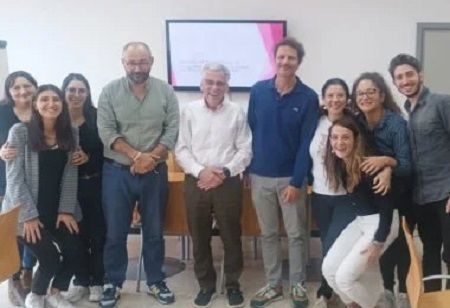Dr. Dennis Kivlighan, a professor at the University of Maryland's College of Education, began the first half of his Fulbright Global Scholar assignment in Italy. He conducted research on the examination of group counseling across Western and Eastern cultures. Working with experts in both Taiwan and Italy, Dr. Kivlighan hopes to investigate how cultural attitudes in group therapy differ around the world and determine whether group counseling models cross cultures. The study will determine how group composition and cohesion shape the effectiveness of therapy and identify factors that make for stronger, impactful results. Dr. Kivlighan's research will last seven months; it will be conducted in Italy, Taiwan, and the United States.
Reflecting on the post-pandemic landscape, Dr. Kivlighan noticed that there is a lot of strides in mental health awareness, starting with the growth of teletherapy. However, he did mention that online therapy, at times, can be isolating, since the presence of others can be one of the core benefits of group counseling. "Being with others can be incredibly supportive, which something virtual sessions can't do," he explained.
His work also challenged the Western world's misconception that group therapy is not as effective as individual therapy. He pointed out that, among many benefits, group counseling could address the emerging need for mental health professionals and foster community. However, he noted the cultural difference between Western countries, where individualism was so strong that people are less willing to open up in front of a group. "In Western cultures, there's a strong tendency to keep personal challenges private and maintain a facade of self-reliance", he said.
This is the second Fulbright award for Dr. Kivlighan, which follows years of collaboration with two longtime colleagues: Dr. Gianluca Lo Coco, clinical psychology professor at the University of Palermo, and Dr. Li-fei Wang, distinguished professor at National Taiwan Normal University. The authors have collaborated on more than 20 journal articles exploring group counseling and social cohesion. Wang and Lo Coco lead research on group therapy in Taiwan and Italy, respectively, and Dr. Kivlighan played a key role in bringing their work together through comparative analysis of their data.
Dr. Kivlighan emphasized the value of teamwork in his career: "I’ve been able to achieve so much thanks to the strong partnerships I’ve built with my colleagues." After spending a month in Italy, he will return to the United States for two months before heading to Taiwan to study how group composition in both countries affects therapy outcomes. According to Dr. Kivlighan, collectivist culture in Taiwan is more natural to group therapy since it promotes dependence on others for support.
The project also poses challenges, especially about the harmonization of two different cultural groups. Taiwanese youth, for the most part, are a homogenous sample coming from a similar background; in contrast, the Italian sample is quite heterogeneous, composed of subjects of different age groups, ethnicities, and mental health issues. Dr. Kivlighan is factoring out these demographic differences as she searches for relevant correlations between the two datasets.
Through this cross-cultural research, Dr. Kivlighan is looking forward to furthering the science of counseling, a better understanding of group therapy, and reduction of myths associated with its effectiveness. Through an integration of insights from both Western and Eastern perspectives, he will be contributing to a more global and inclusive approach in mental health treatment.

